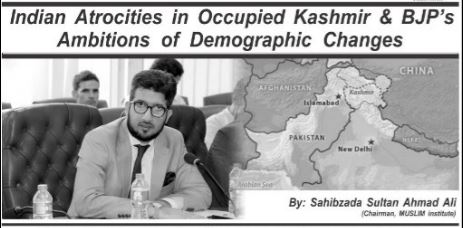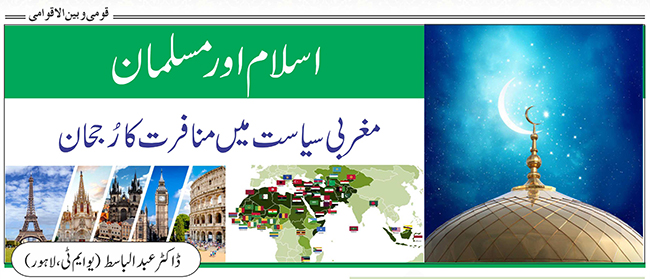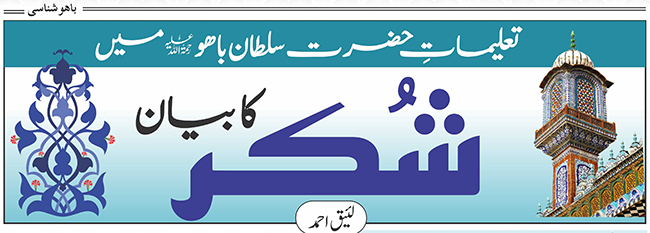Honourable chair, esteemed speakers, delegates and respected participants!
Assalam o Alaikum & good afternoon!
First of all I would like to thank the management of Mirpur University of Science and Technology to give me an opportunity to talk about an issue of immense importance and also congratulate them for organizing the conference on Kashmir issue which is one of the oldest outstanding dispute on the agenda of United Nations.
Ladies & Gentlemen!
I would like to mention very briefly that the accession of Kashmir with India was illegal as Australian political scientist Prof. Christopher Snedden has mentioned in his book 'Understanding Kashmir & Kashmiris'. And hence the subsequent article 370 of Indian constitution is itself null and void which was intended to satisfy the people of Occupied Jammu & Kashmir. Indian Home Minister Gulzar Lal Nanda stated in the Lok Sabha on 4th December 1964,
"The only way of taking the Constitution (of India) into Jammu and Kashmir is through the application of Article 370…. It is through this tunnel that a good deal of traffic has already passed and more will."
On the other hand the very same article puts restrictions on Indian citizens that they cannot buy property nor get citizenship of Occupied Jammu & Kashmir.
In 2014 elections in Occupied Jammu & Kashmir, BJP had the agenda to modify article 370 and to merge it with India and materialize the long Indian plan of changing demography of Kashmir. But in the sham elections, BJP could not win seats in Kashmir valley and only secured seats in Jammu region. The results forced BJP to form coalition government with PDP and hence it failed to freely implement its agenda and remained redundant. Although Kashmiris have totally rejected the BJP's ambitions, still the party is trying for changing demography of Kashmir by different moves including colonies for Indian ex-servicemen in the territory and for Hindu Pundits.
Kashmiri students have been penalized for supporting Pakistan during cricket matches. Similarly students in different universities like Jawaharlal Nehru and Jadavpur Universities raised voices for rights of Kashmiris but they faced penalties and state suppression as well. Through the passage of 'Geospatial Information Regulation Bill' India intends to panelise people and organizations not following official map which shows disputed Jammu & Kashmir territory as part of India. Suppression of civilians along with claim of largest democracy of the world can rightly be described as the biggest double standard. British Professor of Indian origin Mr. Sumantra Bose from London School of Economics describes,
"The purposeful denial of democratic rights has been the defining theme of democratic India's policy toward Kashmir consistently since 1947."
The BJP's government has intensified human rights violations and suppression of people asking for their democratic rights.
New Industrial policy in Occupied Jammu & Kashmir would allow non-Kashmiri industrialists to lease land in the region for a period of ninety years and is a new way for demographic changes in the region and dilute the special status. It will give a chance to organization like RSS to carry on their extreme Hindu policies and to suppress Kashmiris when the Industrialist Hindus will encounter with Kashmiri Muslims.
Ladies & Gentlemen!
With the passage of time, due to India's belligerence and suppression of Kashmiris, the issue has become multidimensional involving political, legal, human, social and military aspects. Presence of more than seven hundred thousand military and paramilitary forces in the Indian Occupied Kashmir has made it most densely militarized civilian population on earth.
Many international organizations have shown serious concerns over human rights violations. European Parliament in 2008 passed resolution which says,
"[it] Strongly condemns the unlawful killings, enforced disappearances, torture, rape and other human rights abuses…"
Amnesty International has also strongly condemned the draconian laws and human rights violations in Indian Occupied Kashmir.
Despite of suppression and long history of Indian state oppression, Kashmiris are determined for their freedom. Even BJP's extreme policies are unable to dent their freedom struggle. Dutch expert on conflict areas Dr Marjan Lucas notes,
"Courage and persistence of the Kashmiri on the ground has happily and unhappily surprised regional as well as global powers, and has kept Kashmir on the radar of international human rights organisations and lobbyists in various diplomatic platforms."
There are deep rooted historical, cultural, social, religious, ideological and geographical bonds between people of Pakistan and people of Kashmir. Pakistan has always stood with the people of Kashmir on all international and regional fronts. It has principled stance of right of self-determination as promised in United Nations resolutions. Pakistan will continue all kinds of moral, political, diplomatic and intellectual support to Kashmiris whatever price it demands.
Legally and morally, it is responsibility of international community to resolve this issue. Professor Oya Akgonenc of Ufuk University, Ankara describes,
"Right now, Kashmir does not offer a strategic advantage to the new imperial powers of the world. Although this dispute has been called the 'powder keg' by knowledgeable scholars and statesmen, it has not drawn focused interest of the international community."
As history is witness, Pakistan and India are unable to resolve their issues bilaterally; therefore, the peaceful resolution of this international issue is possible through third party involvement as well as Kashmiri leadership in the dialogue process. The United Nations resolutions are equally applicable today for the peaceful resolution of Kashmir issue as my dear friend Dr Ghulam Nabi Fai rightly pointed out that the passage of time cannot invalidate an enduring and irreplaceable principle; the right of self-determination of the people of Kashmir. If non-implementation were to render an agreement defunct, then the Geneva Convention in the 21st century in many countries is in no better state than these resolutions. To give people hope and trust in international system, the issue needs urgent attention and the region should be demilitarized at first. British Author Ms. Victori Schofield describes the situation as,
"the tendency being for other trouble spots in the world to take precedence as not only led to disappointment in the resolve of the international community, but also a growing unease that Kashmir has become a 'blind spot' of the world's conscience. This apprehension needs to be addressed urgently."
At the end I once again congratulate the organizers of this conference from the core of my heart and hope that the resolutions of this conference will highlight once again the Kashmir issue on international level. I personally believe and discuss in my circles that Kashmir is not our political commitment but it is our spiritual commitment and we are always standing with Kashmir and Kashmiris.
Thank you very much
(The speech was deliverd in International Kashmir Conference at Islamabad on First June, 2016, Organized by Mirpur University of Science and Technology, AJK)




